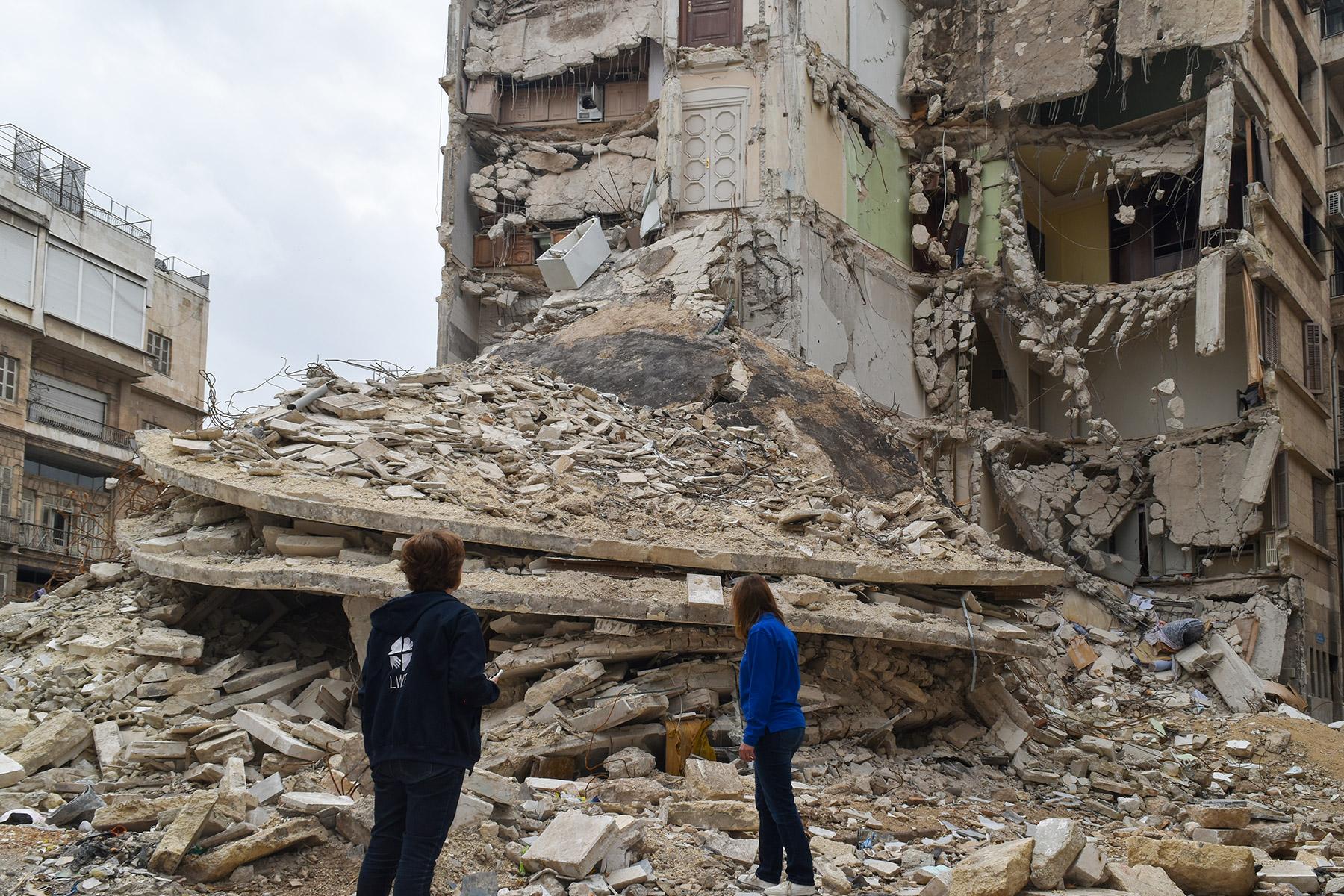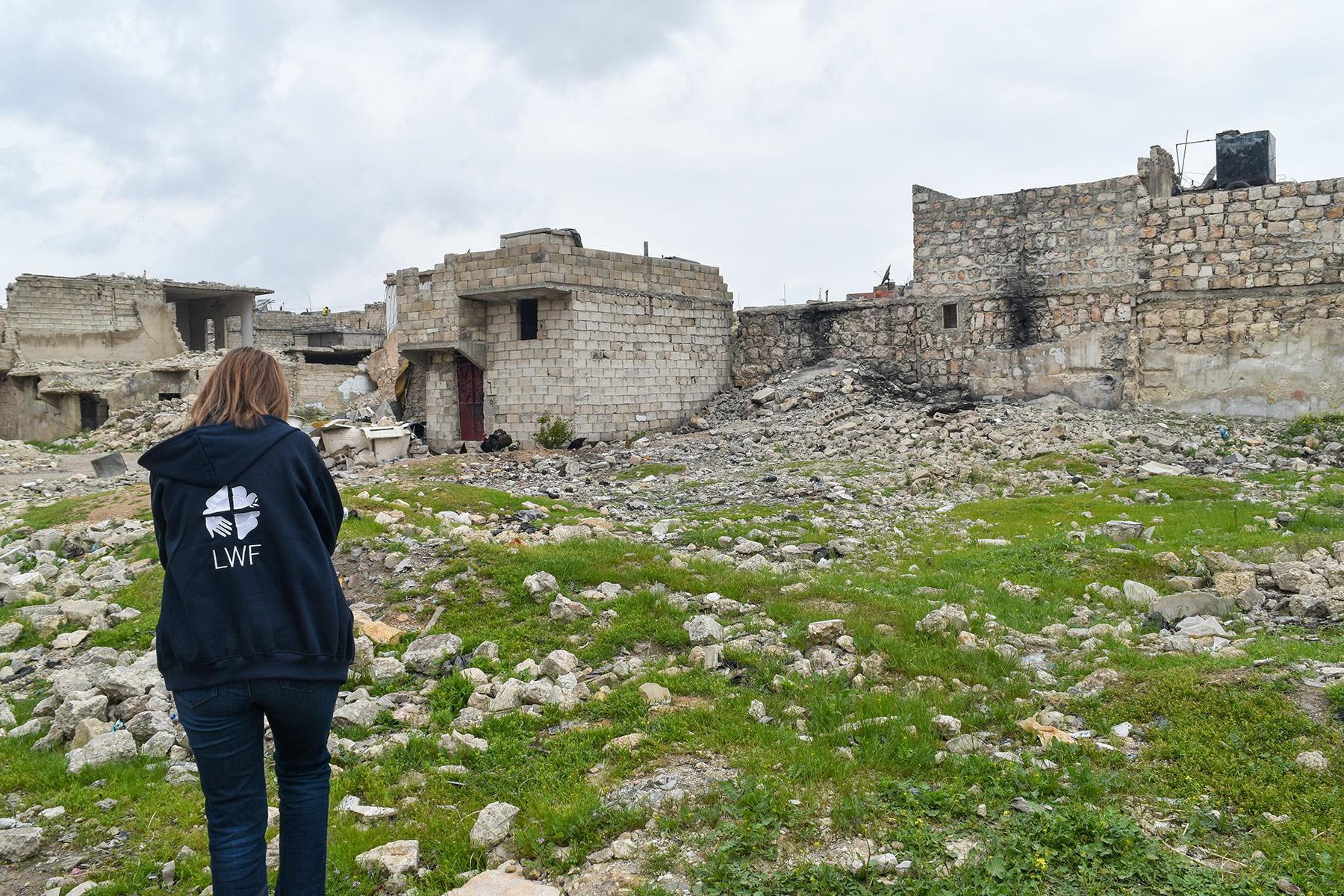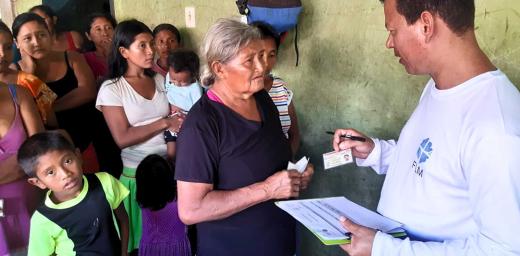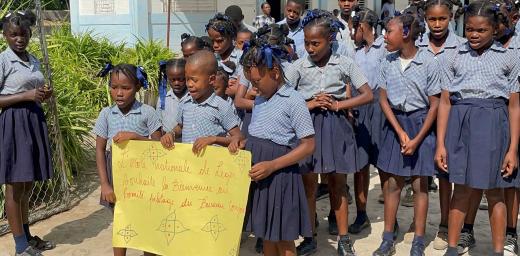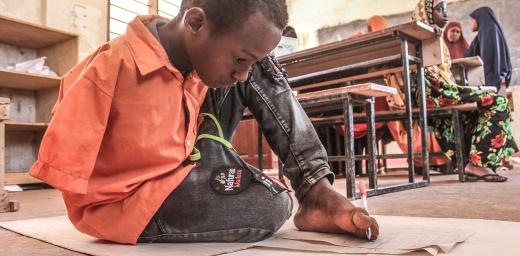"Many people still scared and traumatized"
(LWI) – A team from LWF visited Northern Syria two months after the devastating earthquakes in the Turkey/ Syria border region. Meeting with partners and people affected by the disaster, they discussed the help needed for the coming months. LWF partners with Caritas Syria, which has provided relief goods to the affected population in the region of Aleppo since the earthquake struck on 6 February.
"The needs of the people are constantly shifting," said Ameera Khamees, LWF Country Director for Jordan and Syria. "As food and non-food aid (relief goods like blankets, cooking equipment and hygiene supplies) is now widely available and provided by many organizations, we want to focus on the renovation and maintenance of shelters and schools and to provide cash for shelter to allow families to rent apartments while their home is being repaired."
Traumatized people, disease outbreak
The UN and various local groups estimate that between 55,000 and 200,000 Syrians have become homeless after the earthquake. Many people still live under challenging conditions in improvised mass shelters established in schools, Khamees describes. "We saw eight to ten families living together in one classroom. There was no privacy, no proper facilities for cooking and washing, and very basic equipment. The women had to cover themselves all the time because they could not lock the doors, and men could walk in any time". The culturally inappropriate and potentially unsafe environment affects women and girls particularly negatively.
As numerous schools are occupied or damaged, many more children are out of school, increasing the very high number of children already out of school, estimated at 2 million by UNICEF in 2022. "Parents are afraid to send their children to school because the buildings might collapse," added Khamees.
The earthquake hit people who have been suffering from the Syrian conflict already for more than 11 years. "They had learned to live with the war, but this earthquake has unsettled them immensely. It came without warning and destroyed everything. So many people are still scared and traumatized, even seasoned local humanitarian workers," Khamees said.


